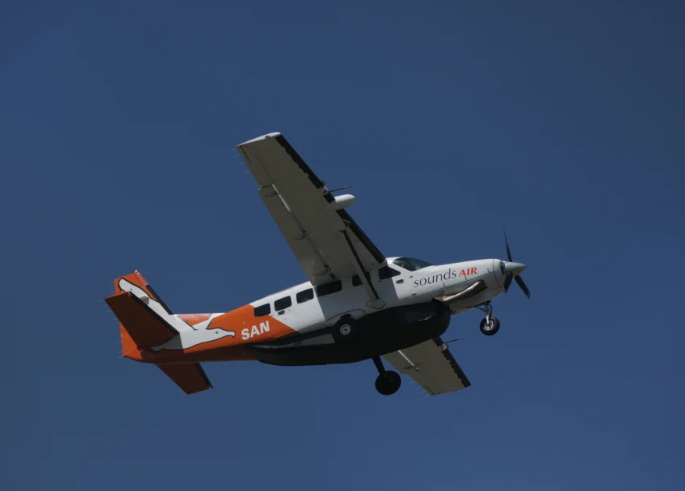
Sounds Air is cutting two regional services, including one to Wānaka, saying it is facing 'out of control' costs despite strong bookings.
The airline will no longer fly Christchurch to Wānaka, or Blenheim to Christchurch, from the end of September.
That was after cancelling its services from Wellington to Taupo, and Wellington to Westport, last December, and selling an aircraft.
Sounds Air managing director Andrew Crawford said aviation has been severely hit by escalating costs, supply chain challenges and a weak New Zealand dollar that was threatening the viability of all regional airlines.
"In the last three months, we've had another half a million dollars of annual costs imposed on the business and at some point, you've just got to say 'no more. We just can't do it'," he said.
Instead, the business will focus on its core regional services, selling its fleet of five Pilatus aircraft and expanding its Cessna Caravan fleet that operates in and around the Cook Strait.
The decision will cost 10 staff their jobs across the Wānaka and Christchurch bases.
Crawford said they were flying more passengers than ever but the costs were so high, engineers were difficult to find and keep, and they had exhausted all other options to make the business viable.
Pre Covid, one of the avionic parts needed cost $28,000, but now the business was paying $70,000 for the same part.
"How many seats do you have to sell on a nine-seat aircraft to make that work? It's impossible."
He acknowledged that people were already paying more for flights, saying fares had gone up more than 20% since Covid and they could go up another 20% and it still would not be enough.
Another cost was the recent hike of the passenger service levy from the Civil Aviation Authority, which he said would cost the business close to $300,000 a year.
"Where are we supposed to get that from? We've just got to pull that on the travelling public."
They had reached out to the government numerous times to no avail, being told the business did not meet the criteria for the regional infrastructure fund months after being told to apply for it, he said.
He was worried about the many regional people who used the flights to access healthcare and what they would do, Crawford said
The change was a relief in some ways as the pressure on the business, staff and shareholders was extreme, he said.
He was confident about the future of the business with its renewed focus on the Cook Strait, saying it was much more sustainable.
"The numbers we're seeing are just astronomical. We used to do four flights a day in and out of Nelson, I think on Friday, we did 12. The demand is there, people are flying and these are cheaper aircraft to maintain."












